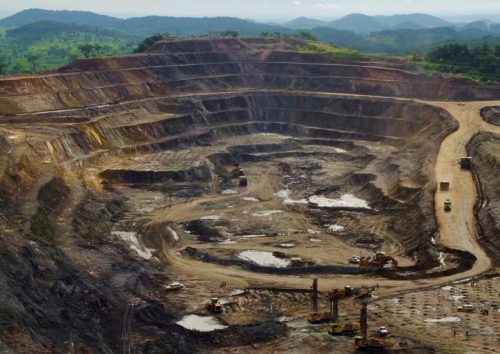KINSHASA, Congo (CNS) — Catholic leaders welcomed tax hikes on mining multinationals as part of Congo’s new mining code in a show of agreement with the government of embattled President Joseph Kabila.

Henri Muhiya, executive secretary of the church’s Ad Hoc Episcopal Commission for Natural Resources, said the new code will “ensure respect for the environment and fiscal transparency.”
The new code, five years in development, was unveiled March 9 by Kabila. It raises taxes on strategic minerals — including cobalt, a vital agreement to the burgeoning electric vehicle market — from 2 percent to 10 percent. Taxes on “classic minerals,” including copper and gold, will rise to 3.5 percent.
The measure, which also levies a 50 percent tax on “windfall profits,” or gains from sudden price rises, replaces a 2002 mining code, which was widely considered too favorable to foreign investors.
A government statement said it reflected a “compromise” between the country and mining companies and would generate “substantial receipts for economic and social development.”
In a March 15 interview with France’s Catholic La Croix daily, Muhiya said church representatives had proposed distinguishing “classic” and “strategic” minerals during negotiations and were glad the distinction had been adopted.

However, he cautioned the tax hikes had been opposed by the seven largest foreign companies operating in Congo, including the Anglo-French Randgold Resources; China Molybdenum; Glencore, an Anglo-Swiss conglomerate; and Ivanhoe, a Canadian firm. All announced March 15 they were quitting the Federation of Businesses of the Congo in protest.
“Randgold was the most aggressive and closed to any change,” Muhiya told La Croix.
“In principle, however, these negotiations have been more transparent than before. It’s a question of our country’s interests, and the prospect of a coming presidential election should assist a positive evolution,” he said.
Catholic organizations frequently deplored the exploitation of resources in the central Africa nation, where multinational corporations have been accused of working with armed groups to obtain minerals used in mobile phones, laptops and other consumer products, and for allowing trade that violated human rights.
In a 2015 declaration, 130 Catholic bishops from 37 countries said many Western firms were “complicit in abuses” through their supply chains, while importing resources from conflict-affected regions.
Muhiya said teams from the ad hoc commission had submitted reports on exploitation of resources from the country’s 41 dioceses prior to the code’s parliamentary approval in January.
He added that the Catholic Church had particularly pressed for a higher tax on cobalt. The market price for cobalt has tripled since 2013 to more than $85,000 a ton.






















